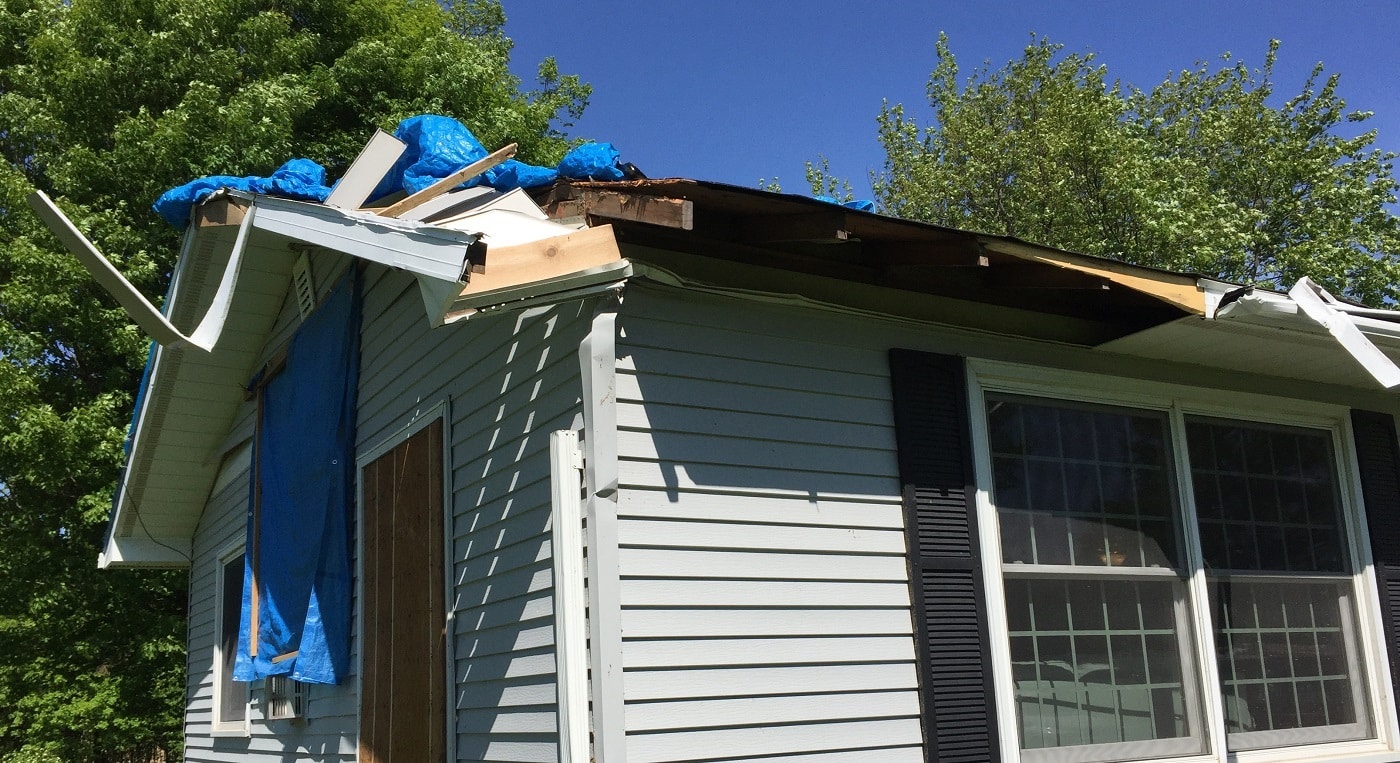Protect You & Your Home From Storm Chaser Contractor Scams
When major storms leave damage to your home, it can be tempting to work with the first contractor that comes knocking on your door, the company that promises you a new roof by the end of the week, or the lowest bidder. However, not educating yourself about who you are working with can have serious consequences, especially when it comes to hail damage contractor scams. 
What is a Storm Chaser?
In the construction industry, the term “storm chasers” or “storm chaser contractors” are those that travel to areas affected by storms and approach those in need of assistance with repairs. Oftentimes, they require cash up-front in exchange for quick unreliable repairs.
Unlike reliable contractors, storm chasers will offer to act as the sole contact with a homeowner’s insurance company. If a homeowner signs documents authorizing a storm chaser to act as sole contact with an insurance company, their insurance settlement check may be made out to the storm chaser, not the homeowner. If this happens, the homeowner relinquishes the right to withhold payment if work is not completed in the manner that was agreed to. The storm chaser is then free to use subpar materials & or even leave the job incomplete because they have already received full payment.
10 Signs of a Storm Chaser Contractor Scam
1) The company solicits business door to door and shows up right after storm damage has occurred.
2) They offer you a way to not have to pay your insurance deductible. (This is insurance fraud.)
3) Contracts are vague and do not state exact dollar amounts & are encouraged to be signed prior to meeting with your insurance adjuster
4) They do not provide evidence of having insurance or a construction license number.
5) You are responsible for obtaining the building permit.
6) Unmarked vehicles or a vehicle with only a magnet that states the company name.
7) No local references are available.
8) Offers a price that seems too good to be true.
9) Uses a PO box as their address.
10) Out of area license plates and/or driver’s licenses.
In addition to the harm they can cause a local homeowner, contractor scams can be detrimental to the local economy. Why? Storm chasers often cut corners on things like insurance and materials, likely making them the cheapest contractor to work with. If this happens repeatedly, it can make it difficult for legitimate contractors to have market share, causing them to go out of business. This, in turn, provides the consumer with fewer places locally when a home repair is needed.
Storm Damage at Your Home? Here are Some Thoughts to Consider
Oftentimes, storm chaser contractors do not carry insurance policies, leaving the homeowner at risk. If a roofer is injured while working on your home and the contractor they are working for does not have insurance, their medical bills may become the responsibility of the home owner. Another area where storm chasers fall short is warranties. Most roofing materials have warranties to protect the homeowner. However, warranties are void if the roofing was installed incorrectly. If you’re dealing with a storm chaser scam that has no permanent address, it’s difficult to receive support if the product they installed malfunctions before the end of its intended lifespan. A local contractor has a reputation to uphold and will likely do everything to rectify the situation if something goes wrong with a product down the road. Their contracts often offer very specific terms that they are likely to honor.
Hear from One of Our Storm Damage Restoration Clients
